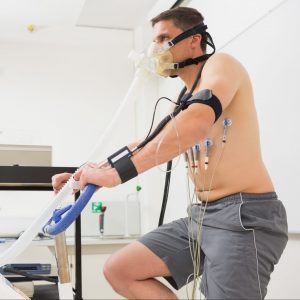The purpose of this project is to develop a clinical intervention enabling the study of people with ME/CFS, and to evaluate changes in miRNAs in response to this clinical intervention.
Study Hypothesis and Description
Studying microRNAs might help to bridge the conceptual gap between genetic predisposition and environmental factors causing ME/CFS or exacerbating specific symptoms. Equally important, the design of a portable clinical intervention will allow for the investigation of severely ill persons with ME/CFS, especially the ones that are housebound.
We designed a clinical intervention, safely producing post-exertional malaise (PEM), a hallmark symptom of ME/CFS. We hypothesized that a standardized stress test inducing PEM will reveal a more specific disease signature associated with ME/CFS symptoms. In that context, we investigated the role of circulating microRNAs, which are small non-coding RNA molecules that can be detected in the blood as well as in other biological fluids.
Objectives
